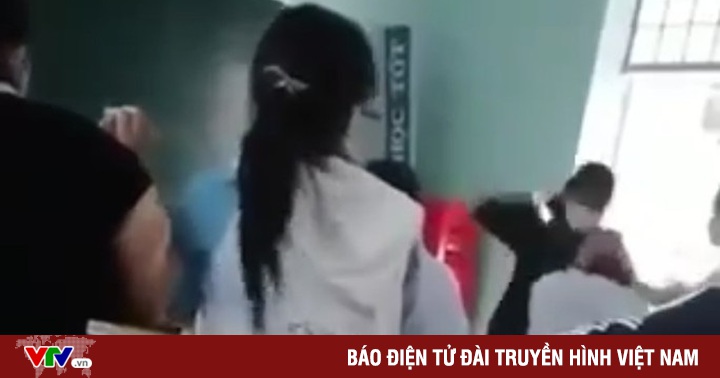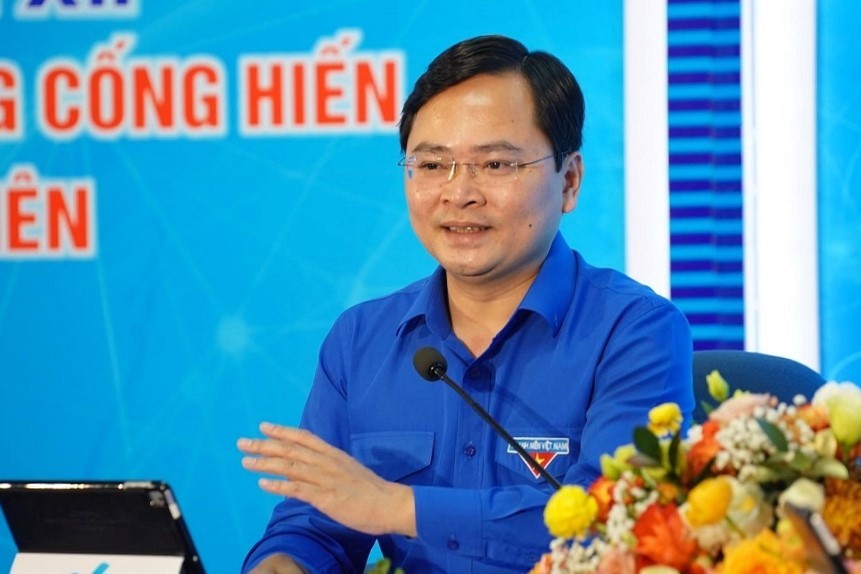After graduating with a bachelor’s degree in Business Administration, Minh Duc still won a full scholarship for a master’s degree in Communication in the US thanks to 5 outstanding factors.
Bui Minh Duc, 28 years old, Hanoi, is an international master’s student in the US on a full Fulbright scholarship from the government. From his experience, Duc shares things to keep in mind with candidates who want to apply for a scholarship in a different field.
Accumulate enough years of work experience
When you decide to apply for an off-campus scholarship, you need work experience to solve two problems: Help you gain more practical knowledge in the field you want to pursue; demonstrate determination to follow this new path.
The Fulbright Scholarship requires only two years of post-graduation work experience. However, if you study a field contrary to the university level, you should have more time to experience real work to solidify your knowledge.
Before applying for the Fulbright US government scholarship, I had seven years of experience working full-time in the media field with the positions of: Editor and columnist at a news website with a large audience, expert. communication at an NGO. I select jobs selectively to make my resume stand out.
In addition, emphasis should be placed on work- and field-relevant achievements at the master’s level. For example, I was voted excellent reporter two years in a row, my work was nominated for the best article of the year in the LGBT Awards… Such achievements will demonstrate your ability and Studying in the wrong field is not a barrier when you have a lot of practical experience.
Prove your academic ability
Academic competence is an important condition in any industry. Higher education levels such as masters and doctorates pay more attention to this factor.
To make my profile convincing, I give specific data: I am the entrance and exit valedictorian majoring in Tourism at Hanoi University (2011-2015); IELTS 8.0. I also participate in scientific research at school and when working on communication topics.
I think candidates need to research the scholarship carefully to add academic plus points to the application. For example, some scholarships will charge IELTS of 8.0 and above plus 2 points, while IELTS 7.5 and below will only get 1 point. With more and more free online courses available on platforms like Coursera, you can take a few courses to improve your skills while also knowing how to highlight important elements in your resume.

Bui Minh Duc, Fulbright Scholarship holder in 2021 majoring in Communication. Image: Characters provided
Tell your own story
Storytelling is an important technique, not only in the way candidates write their essays, but in the entire process of building a profile about themselves. For those studying in the wrong field, the profile will have “weak links”. From a student majoring in Business Administration and Tourism, I have to prove how worthy I am to study communications in the US with a full scholarship.
Mastering the elements of storytelling helps me articulate my changing majors and future direction. Working a lot with minority groups in society such as the LGBT community, I realize they are still being portrayed with prejudices in the media. That is one of the reasons why I want to study communication to create change in Vietnam.
Some scholarships prefer a “Story of change” narrative structure to see the candidate’s contribution to the scholarship. From “Story of you”, candidates connect to “Story of us” to emphasize how their personal story means to society, Then tell about “Story of change” – if you go to school, what problem will it solve for individuals and the community?
Prepare well for interview questions
When you apply for a different industry, the interview questions will certainly revolve around that change as well as assess the level of knowledge with the new industry. During this round, I was asked a lot about my knowledge and reasons for wanting to study communication.
The interviewer does not quiz the candidate but just like having a conversation. They want to understand the “weak links”, suggesting a better understanding of why and future path. Being steady in my responses, confidently giving reasons, and freely accepting my weaknesses or “imperfections” helped me find conversation more natural.
When studying in the wrong field, your path will certainly be bumpy but also more memorable. Bring it all to the interview because those are valuable experiences that make a difference in you.
Prove your worth in your field of study
I always wonder why they choose me – the person studying in the wrong field. That’s when I reflected on my values and answered the important question of all scholarships: “Why do you deserve to be selected?”.
The experience of 5 failed government scholarship applications made me realize that I shouldn’t start my application by thinking about the topic or writing an essay. You should take the time to answer the question “What makes me valuable compared to other candidates?”, or consult a mentor to have a more objective view.
When I realized that communication is really necessary for society, my years of experience were enough, and I knew I met the characteristics that the scholarship was looking for in the candidate, I became ready for a new journey, even if I was studying in a different way. branch.
Bui Minh Duc
at Blogtuan.info – Source: vnexpress.net – Read the original article here


